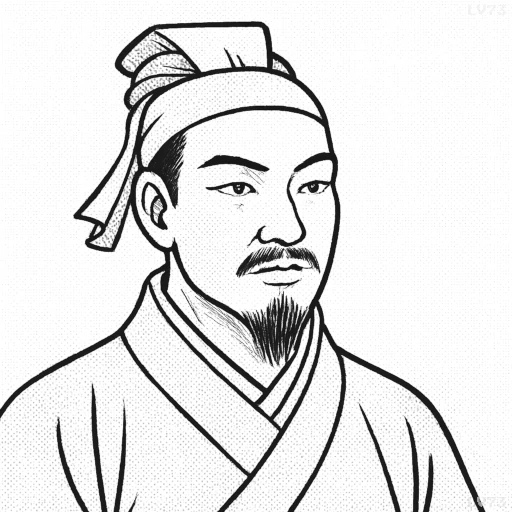“It is only the enlightened ruler and the wise general who will use the highest intelligence of the army for the purposes of spying, and thereby they achieve great results.”

- 544 BC-496 BC
- Born in China
- Military strategist, military strategist
table of contents
Quote
“It is only the enlightened ruler and the wise general who will use the highest intelligence of the army for the purposes of spying, and thereby they achieve great results.”
Explanation
Sun Tzu highlights the critical importance of intelligence gathering in warfare. According to him, the most enlightened rulers and wise generals recognize that espionage is not just a tactical tool, but a fundamental strategy for achieving victory. By utilizing the highest intelligence—which could mean employing spies, gathering information, and analyzing the enemy’s weaknesses—leaders can make informed decisions, disrupt enemy plans, and exploit vulnerabilities. This intelligence allows a ruler or general to act decisively and anticipate the enemy’s moves, which is often the key to gaining the upper hand without relying solely on brute military force. Sun Tzu suggests that the most successful leaders are those who master the use of espionage and understand its power in shaping the outcome of conflicts.
In modern contexts, the use of intelligence is just as vital, whether in military operations, business strategy, or political maneuvering. In military conflicts, intelligence agencies such as the CIA, MI6, or Mossad often provide the critical information that determines the success or failure of military missions. The famous Operation Overlord (D-Day) during World War II succeeded in part due to intelligence efforts, which misled the Germans about the location of the invasion. In business, companies rely on market research, competitive analysis, and surveillance to stay ahead of competitors. Firms like Amazon and Google constantly analyze consumer data and competitors’ strategies to make informed decisions. In politics, leaders often use covert intelligence to anticipate and counteract the moves of other nations, or to shape public opinion. Sun Tzu’s principle of using intelligence to anticipate the enemy’s actions remains crucial in navigating the complexities of modern geopolitics and global business.
Historically, the most successful leaders have always understood the power of intelligence. Alexander the Great used scouts and spies to gather information about enemy territories and their strengths. Napoleon Bonaparte relied heavily on intelligence networks to understand his opponents’ strategies, which helped him win numerous battles. Similarly, Queen Elizabeth I had a network of spies that provided critical intelligence on her enemies, including the Spanish Armada. During World War II, Winston Churchill recognized the importance of intelligence and established agencies like MI5 and MI6 to gather information on Nazi plans, which significantly contributed to the Allied victory. The use of spies and intelligence was not just about knowing the enemy’s next move but about turning that knowledge into a strategic advantage that led to decisive victories. Sun Tzu’s assertion that the enlightened ruler and wise general leverage the highest intelligence remains as relevant today as it was in his time.
Would you like to share your impressions or related stories about this quote in the comments section?
